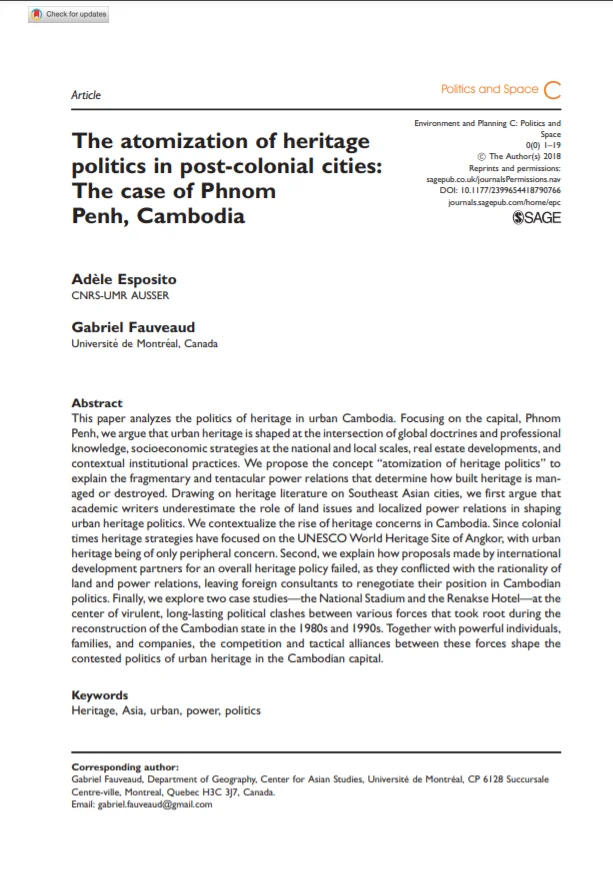
This paper analyzes the politics of heritage in urban Cambodia. Focusing on the capital, Phnom Penh, the authors argue that urban heritage is shaped at the intersection of global doctrines and professional knowledge, socioeconomic strategies at the national and local scales, real estate developments, and contextual institutional practices. They propose the concept "atomization of heritage politics" to explain the fragmentary and tentacular power relations that determine how built heritage is managed or destroyed.